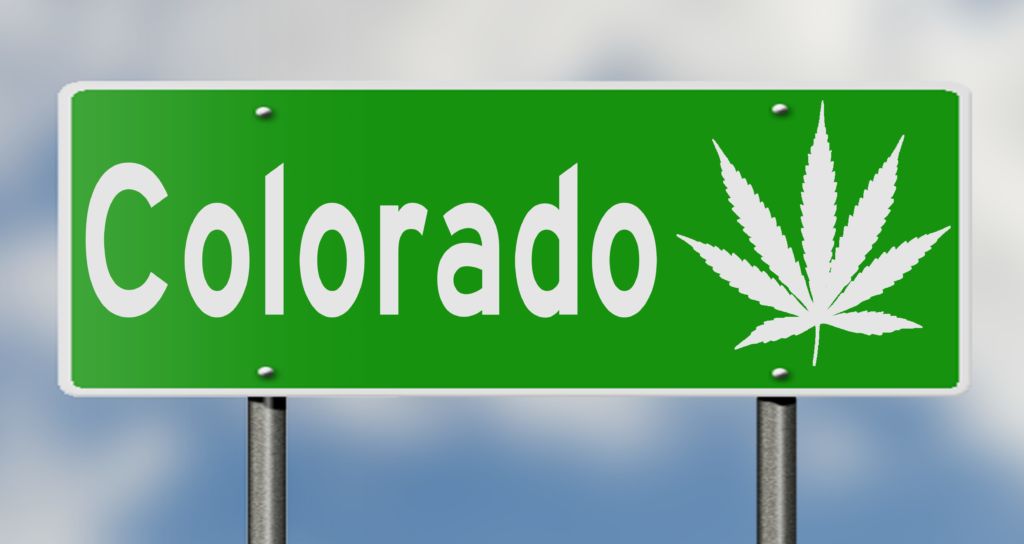Does Health Insurance Cover Medical Marijuana
Cannabis was an illegal narcotic under federal and state legislation for many years. However, many states now permit the use of medical marijuana. The market and policies are changing quickly, creating uncertainty about how medicinal marijuana may affect insurance policies and other elements of life.
Recently, there has been a change toward normalizing the consumption of marijuana in the United States as a means of providing symptomatic relief for patients suffering from chronic and life-threatening medical diseases. When managing chronic pain, medical marijuana may present an appealing alternative to opioids obtained through a doctor’s prescription. This solution may be more affordable as well.
So, is medical marijuana covered by insurance? Continue reading below to find out.

Laws about medical marijuana
Medical marijuana is unlawful under federal legislation. Nevertheless, certain states have legalized the use of marijuana for medical and, in some instances, leisure purposes. Consequently, it is only natural to assume widespread confusion among users.
It was not until February 2022 that Mississippi became the 37th jurisdiction to approve legislation making marijuana usage for medical purposes legal. Marijuana for medical use is legal in four of the United States territories. However, it is still against the law on a national level because marijuana is still considered a restricted substance under federal law.
Medical marijuana - Controlled Substance
Medication and other drugs that the national government deems to carry a greater potential for abuse and dependence gets referred to as controlled substances. Because of this, federal law makes it illegal for medical professionals to recommend or prescribe marijuana to patients.
So, does health insurance cover medical marijuana?

Medical Marijuana in Colorado
In the year 2000, residents of Colorado participated in a statewide referendum that resulted in the passage of Amendment 20, specific legislation that aimed to make it legal for people suffering from specified diseases to consume marijuana for medicinal purposes. In addition to Colorado, 33 other states have enacted legalizing policies similar to Colorado’s. However, under current federal law, you cannot receive a prescription for medicinal marijuana, even though many states are working to decriminalize the drug for medical use.
The Colorado Medical Marijuana Registry is a government program that maintains strict confidentiality. Patients who suffer from qualifying ailments that severely impair their quality of life are eligible to apply for a registry identification card granting them authorized medical marijuana access.
Medicare & Medicaid
Does Medicare Cover Medical Marijuana?
Medicare gets forbidden from paying for medical marijuana under federal law. The effectiveness of cannabis for medical usage has not yet gotten deemed credible by the US Food and Drug Administration. Hence, Medicare will not fund medical cannabis unless the FDA decides otherwise.
Medicare, which is a federal health insurance program for people aged 65 and over, does not cover medical marijuana. The reason for this is that marijuana is still considered a Schedule I drug under federal law, meaning it is illegal and has no accepted medical use.
However, some Medicare Advantage plans, which are private health insurance plans that offer Medicare benefits, may cover medical marijuana in states where it is legal for medical use. If you are interested in using medical marijuana and have a Medicare Advantage plan, you should check with your plan provider to see if it is covered.
It’s important to note that even if medical marijuana is covered by your Medicare Advantage plan, you may still need to meet certain criteria or obtain authorization from your doctor before using it.
Does Medicaid Cover Medical Marijuana?
Medicaid is an insurance program tailored for low-income patients, unlike Medicare. But like Medicare, Medicaid typically does not pay for costs associated with medical marijuana.
The coverage of medical marijuana under Medicaid varies from state to state in the United States. While some states have approved the use of medical marijuana for certain medical conditions, Medicaid does not cover medical marijuana at the federal level.
Although some states have legalized medical marijuana, it is still illegal under federal law. Therefore, the federal government cannot fund the use of medical marijuana through programs such as Medicaid.
However, some states have implemented their own Medicaid programs that may cover medical marijuana, subject to certain restrictions and guidelines. If you are interested in using medical marijuana to treat a medical condition, you should consult with a doctor and check with your state’s Medicaid program to see if it is covered.

Does insurance pay for medical marijuana?
So, the ultimate question remains: does insurance pay for medical marijuana? The answer is that most health insurance companies do not include medicinal marijuana-related costs, consultations, or treatments in their coverage. This response is because most of these businesses get governed by federal law and must adhere to its coverage mandates.
Conclusion
Even though you can use medical marijuana legally in some states, it is important to note that health insurance providers do not necessarily provide insurance for its consumption.
Visit our blog for information on medical marijuana laws in different states!
FAQ
Does THC in strain help with anxiety?
Generally, THC in small amounts reduces the level of anxiety, but in large doses it can increase it. However there is a strain called Kosher Kush that comes out from this pattern. Due to their genetic makeup, numerous Kush strains exhibit a consistent combination of high levels of THC and notable amounts of the terpene trans-nerolidol, which are often employed in the treatment of anxiety and stress.
What should I look for when choosing an anxiety-relieving cannabis strain?
When choosing an anxiety-relieving cannabis strain, consider the following factors:
- Strains with higher CBD (cannabidiol) levels are believed to have potential anti-anxiety effects.
- Terpenes present in the strains contribute not only to its aroma but also it may offer additional anxiety-relieving benefits. Terpenes like myrcene, caryophyllene, and limonene are commonly associated with anxiety relief.
- THC:CBD Ratio should be balanced or should contain higher CBD content.
- Reading user reviews and seeking recommendations from others who have used the strain for anxiety relief can provide valuable insights.
Can cannabis strains help with anxiety?
Yes, certain cannabis strains can help alleviate anxiety. These strains are specifically bred or selected for their potential anti-anxiety properties. They contain various cannabinoids and terpenes that work together to provide calming and relaxing effects.
What stroke symptoms can marijuana help with?
Medical marijuana has the potential to help with certain stroke symptoms such as frustration, sadness, anxiety, fear, depression, and feelings of hopelessness. It may also assist with pain management, including post-stroke pain, and provide relief for unexplained headaches experienced by stroke victims.
What are possible side effects of medical marijuana?
Side effects of medical marijuana may include dizziness, fatigue, dry mouth, headache, nausea, short-term memory and focus issues. In some cases, there is also a low risk of developing schizophrenia or addiction. However, medical marijuana can also offer many health benefits such as improved sleep and enhanced mood.
What are the active ingredients in medical marijuana?
Medical marijuana contains two main active ingredients: CBD (cannabidiol) and THC (delta-9 tetrahydrocannabinol). Different strains have varying concentrations of these ingredients. CBD is known for its anti-inflammatory and pain-relieving properties without causing a psychoactive "high," whereas THC is responsible for the psychoactive effects often used for patients in significant pain.
Why is medical marijuana used for ulcerative colitis?
Medical marijuana may be used for ulcerative colitis due to the presence of cannabinoids that bind with endocannabinoid receptors in the body, including those located in the gastrointestinal tract. While there are no definitive studies confirming the efficacy of cannabis for inflammatory bowel diseases, many patients use it to manage pain, nausea, and appetite.
Can someone be allergic to marijuana?
Yes, it is possible to be allergic to marijuana. Some individuals may experience allergic symptoms such as a runny nose, congestion, or watery eyes when using cannabis. Serious allergic reactions are rare but can occur. It is advisable to be cautious and consult a doctor before using medical marijuana.
Can medical marijuana be used for treating allergies?
Medical marijuana may provide relief for certain symptoms of seasonal allergies, such as headaches. However, smoking or vaping can further irritate the airways. Alternative methods of consumption, like cannabis-infused coconut oil or edibles, may be more suitable for managing seasonal allergy symptoms.
Can medical marijuana be used alongside thyroid medication?
If you are taking thyroid hormone medication, it is important to consult with your doctor before considering medical marijuana as an additional treatment option. Medical marijuana has been proven to help alleviate symptoms like headaches, nausea, and irritability commonly associated with thyroid disease, however it is crucial to consult your doctor before taking it.
Can medical marijuana help with sleep issues?
Yes, medical marijuana has been found to help with sleep problems for some individuals. Certain strains of marijuana contain compounds such as THC and CBD, which have sedative properties that can promote relaxation and aid in falling asleep
How does medical marijuana help with sleep?
Medical marijuana interacts with the endocannabinoid system in the body, which plays a role in regulating sleep patterns. The compounds in marijuana can help reduce anxiety, relieve pain, and induce drowsiness, thus improving the quality and duration of sleep for some individuals.
Can medical marijuana enhance concentration?
The effects of medical marijuana on concentration can vary from person to person. While some individuals may experience increased focus and attention, others may experience difficulty concentrating or feel more mentally foggy. It's important to note that individual reactions to marijuana can differ
Are there specific strains of medical marijuana that can help with concentration?
Certain strains of medical marijuana, particularly those with higher CBD content and lower THC levels, are believed to have more potential for enhancing concentration. These strains may provide the benefits of increased focus and mental clarity without the psychoactive effects typically associated with high THC strains.
What are some of the best edibles for promoting sleep?
When it comes to edibles for sleep, those with higher levels of CBD are often recommended. CBD has calming properties that can aid in relaxation and contribute to better sleep. Edibles such as CBD-infused gummies, chocolates, or capsules are commonly used for this purpose.
How long does it take for edibles to take effect for sleep?
The onset of effects from edibles can vary, but generally, it takes anywhere from 30 minutes to 2 hours for the effects to be felt. Factors such as metabolism, the contents of the edible, and individual tolerance levels can influence the timing. It's important to start with a low dosage and allow ample time for the edible to take effect before consuming more.
Can medical marijuana effectively help veterans with PTSD?
Medical marijuana has shown promise in helping veterans cope with PTSD symptoms. The cannabinoids in marijuana interact with the endocannabinoid system, which plays a role in regulating emotions and memory. By reducing anxiety, promoting relaxation, and potentially modulating traumatic memories, medical marijuana may provide relief for some veterans with PTSD.
Are there any risks or side effects associated with medical marijuana use for PTSD?
While medical marijuana can be beneficial for some veterans with PTSD, it's important to note that individual reactions and side effects may vary. Common side effects include dry mouth, increased appetite, and temporary cognitive impairment. Additionally, marijuana's psychoactive effects may not be suitable for everyone, and careful monitoring by a healthcare professional is recommended.
How long is a medical marijuana card valid for?
The validity of a medical marijuana card depends on the regulations of the specific state or country where it was issued. In many cases, medical marijuana cards are valid for a period of one year from the date of issuance. However, it's important to check the local regulations and renew the card accordingly.
What is the process for renewing a medical marijuana card?
The process for renewing a medical marijuana card also varies by jurisdiction. Typically, it involves submitting a renewal application, providing updated medical documentation if required, and paying the necessary fees. It's advisable to start the renewal process well in advance to ensure continuity of access to medical marijuana.
